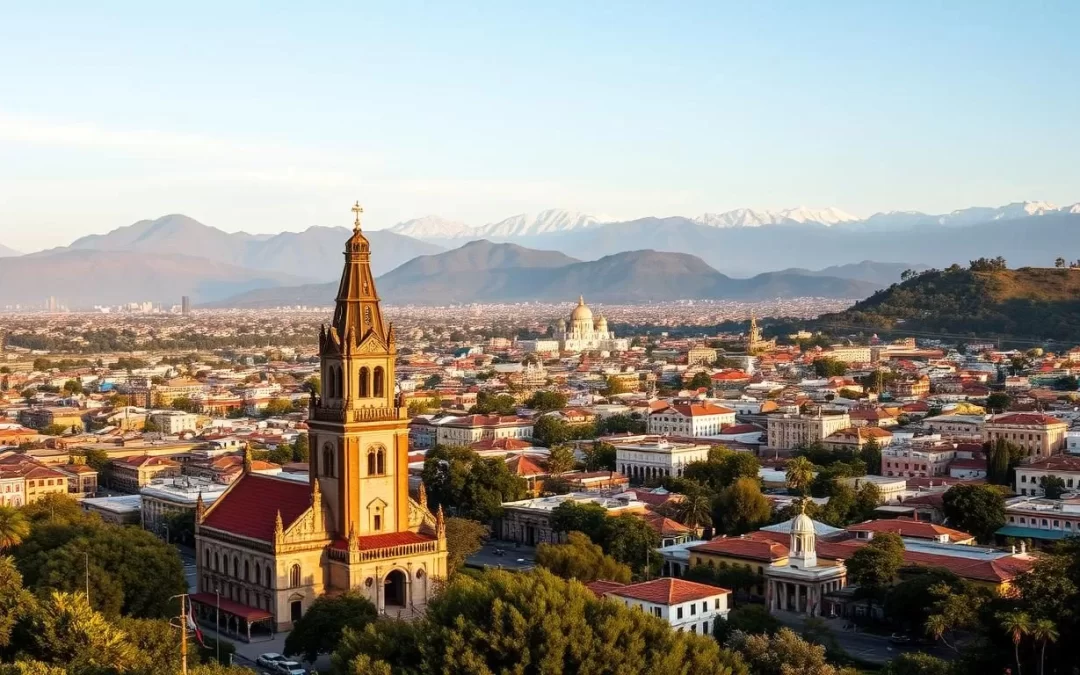
Quito, Ecuador: Best Things to Do – Top Picks
Nestled high in the Andes at 9,350 feet above sea level, Quito is a treasure trove of history, culture, and natural beauty. As the second-highest capital city in the world, it’s a UNESCO Cultural Heritage Site that offers a unique blend of indigenous, Spanish, and modern influences.
As you explore this fascinating city, you’ll uncover a wealth of exciting experiences and attractions. From its well-preserved colonial center to its breathtaking surroundings, Quito is the perfect base for your next adventure. Whether you’re a history enthusiast, an adventure seeker, or a family looking for an enriching vacation, this guide will help you discover the top things to do and see in this captivating Andean capital.
Discovering the Charm of Ecuador’s Capital
Nestled in the Andes, Quito is a city that offers a mix of traditional and contemporary experiences. As you wander through its historic downtown, you’ll be struck by the city’s unique blend of colonial architecture and modern amenities, making it one of the most fascinating capital cities in South America to explore.
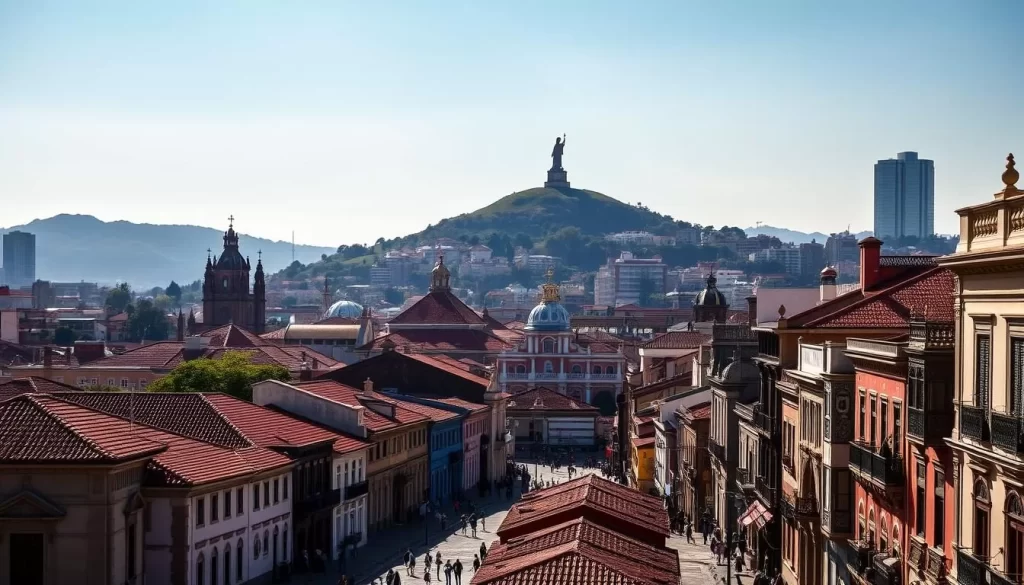
The city’s proximity to the equator means it enjoys a spring-like climate year-round, with temperatures ranging from 60°F to 70°F (15°C to 21°C), making any time a good time to visit. For optimal weather conditions, plan your travel to Quito between June and September, when the chances of rain and clouds are at their lowest, especially if you’re heading to the Galapagos Islands afterward.
Why Quito Should Be on Your Travel Bucket List
Quito offers a plethora of activities and experiences that cater to all kinds of travelers. From exploring its historic center, a UNESCO World Heritage Site, to enjoying the vibrant cultural scene, there’s something for everyone in this city. Whether you’re interested in history, architecture, or simply soaking up the local culture, Quito is a destination that promises to leave a lasting impression.
The city’s travel guide will lead you through the various neighborhoods, each with its unique character, from the colonial charm of the historic center to the modern amenities of newer areas like La Floresta and Parque La Carolina.
Getting Around Quito Safely
Navigating Quito can be done in various ways, including using the affordable public transportation system, taxis, Uber, or opting for organized travel tours that offer a comprehensive way to see the city’s highlights. While the historic downtown is generally safe during the day, it’s advisable to exercise caution in the evenings by staying in well-lit areas and using reputable transportation services.
For your safety, consider staying in neighborhoods like La Floresta or near Parque La Carolina, which are considered safe and offer a range of accommodations. Additionally, be mindful of the city’s high altitude (9,350 feet) and take necessary precautions to acclimatize and stay hydrated during your stay.
Exploring Quito’s Historic Center
As you wander through Quito’s historic old town, you’ll feel as though you’ve stepped back in time. The area is a treasure trove of colonial history, architecture, and culture, with its cobblestone streets, pastel-colored buildings, and ornate churches reflecting a bygone era.
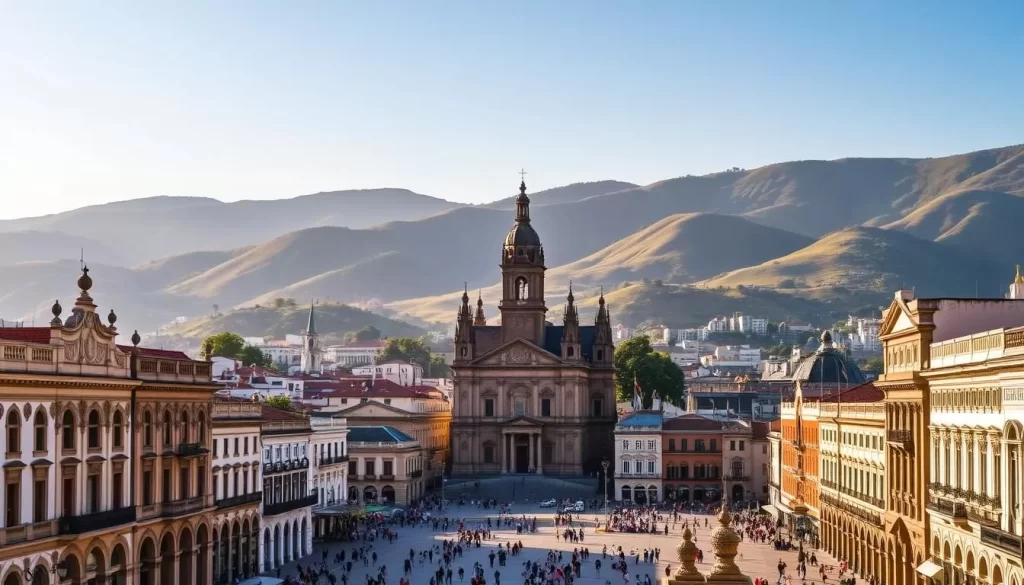
Plaza Grande and Independence Square
At the heart of Quito’s Historic Center lies Plaza Grande, also known as Independence Square. This prominent plaza is surrounded by significant buildings, including the Presidential Palace, the Municipal Palace, the Archbishop’s Palace, and the Cathedral of Quito. The statue of the Heroes of Independence stands tall at the center of the plaza, symbolizing the city’s rich history.
Churches and Colonial Architecture
The Historic Center is home to some of South America’s most spectacular colonial churches, including the ornate Compañía de Jesús with its gold-leaf interior and the impressive San Francisco Church and Monastery complex. San Francisco Plaza offers another beautiful public space to explore, with its historic church, monastery, and surrounding colonial buildings creating a picturesque setting.
| Landmark | Description | Significance |
|---|---|---|
| Plaza Grande | Main square surrounded by important government and religious buildings | Historic and cultural hub |
| San Francisco Church | Large Franciscan church and monastery complex | Architectural and historical significance |
| Compañía de Jesús | Church known for its gold-leaf interior | Example of Jesuit architecture |
Changing of the Guard Ceremony
If you visit on a Monday, don’t miss the impressive changing of the guard ceremony at Plaza Grande at 11 am sharp. This formal procession, sometimes attended by the president from his balcony, is a unique experience that showcases the city’s traditions and history. The center of Quito comes alive with this ceremony, making it a memorable experience for visitors.
Quito’s Historic Center, being one of the largest and best-preserved colonial areas in Latin America, earned its UNESCO World Heritage status in 1978. Exploring this old town on foot allows you to discover its many hidden gems and appreciate the city’s rich cultural heritage.
Breathtaking Views from TelefériQo
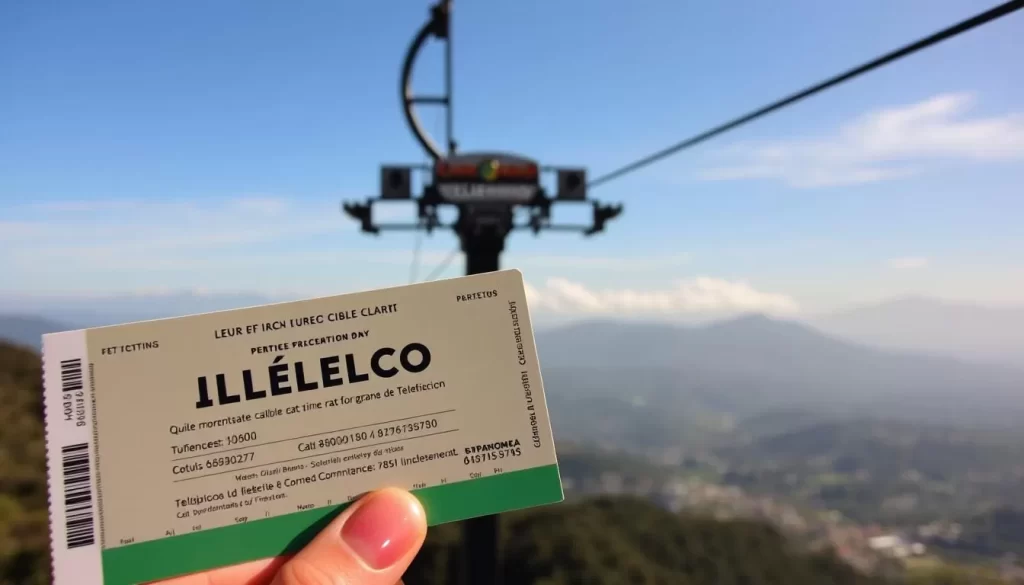
Rise above Quito with TelefériQo, a cable car adventure that promises panoramic views and unforgettable experiences. As one of the highest aerial lifts in the world, TelefériQo offers access to hiking trails and scenic picnic spots at an altitude of over 13,000 feet.
The TelefériQo cable car ride is an exciting experience, ascending 2,237 feet in just 18 minutes. You’ll watch the urban landscape give way to the páramo ecosystem of the high Andes, offering a unique perspective on the city and its surroundings.
Riding the Cable Car Experience
The TelefériQo is one of Quito’s most popular attractions, taking you from the city up the east side of Pichincha Volcano. The cable car journey itself is an experience, with the sprawling city laid out below you and, on clear days, views of surrounding volcanoes including the snow-capped Cotopaxi.
At the top, you can enjoy various activities, including taking photos on the famous swings with the city as your backdrop, enjoying a hot beverage at the café, or simply taking in the views from various lookout points.
Hiking Options at the Summit
For more adventurous visitors, hiking trails lead from the upper station to the summit of Rucu Pichincha at 15,413 feet, a challenging 4-hour round trip that rewards with even more spectacular panoramic views. To complete the hike, allow hours and be prepared for the 2,550 feet of altitude gain.
Remember to dress warmly in layers as temperatures at this altitude can be significantly cooler than in the city. Give yourself time to acclimate to the altitude before attempting any strenuous activities, finding your way through the trails with ease.
Quito, Ecuador: Best Things to Do – Top Picks for Cultural Immersion
Experience the essence of Ecuadorian culture in Quito, where tradition meets modernity in a unique blend of art, history, and entertainment. As you explore this vibrant city, you’ll discover a plethora of activities that allow you to truly immerse yourself in the local culture.
Basílica del Voto Nacional
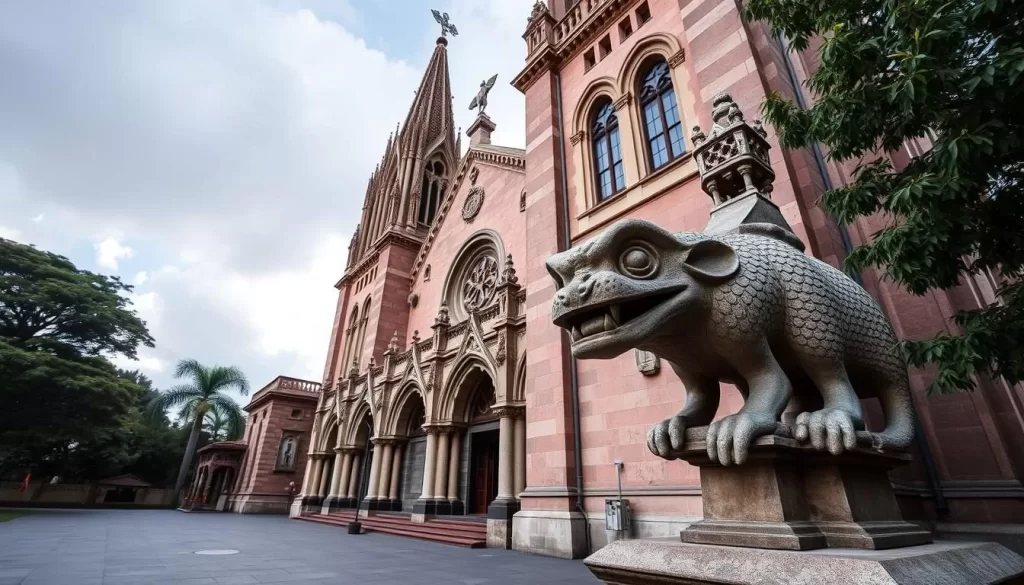
The Basílica del Voto Nacional stands as one of the most impressive neo-Gothic cathedrals in Latin America, featuring unique Ecuadorian touches like gargoyles shaped as native animals including iguanas and tortoises. For just $2 USD, you can enter the main cathedral, but it’s worth paying the additional $2 USD to climb to the top of the towers for some of the most spectacular views of Quito’s historic center and surrounding mountains.
La Ronda Street: Quito’s Artistic Hub
La Ronda (Calle La Ronda) is one of Quito’s oldest and most charming streets, a narrow cobblestone pathway lined with colorful colonial houses that have been beautifully restored and now house artisan shops, galleries, cafes, and restaurants. This historic street comes alive especially in the evenings when local musicians perform traditional Ecuadorian music, creating a lively atmosphere that gives you a taste of authentic Quiteño culture.
Museums Worth Visiting
Quito offers several world-class museums worth visiting, including the Museo de la Ciudad (City Museum), which chronicles Quito’s history; the Casa del Alabado, showcasing pre-Columbian art; and the Capilla del Hombre, dedicated to the works of famous Ecuadorian artist Oswaldo Guayasamín. Don’t miss the opportunity to visit Yumbos Chocolate in the San Francisco Plaza area, where you can learn about Ecuador’s world-renowned chocolate production and sample some of the finest chocolate products while enjoying views of the historic plaza.
Standing in Two Hemispheres: Mitad del Mundo
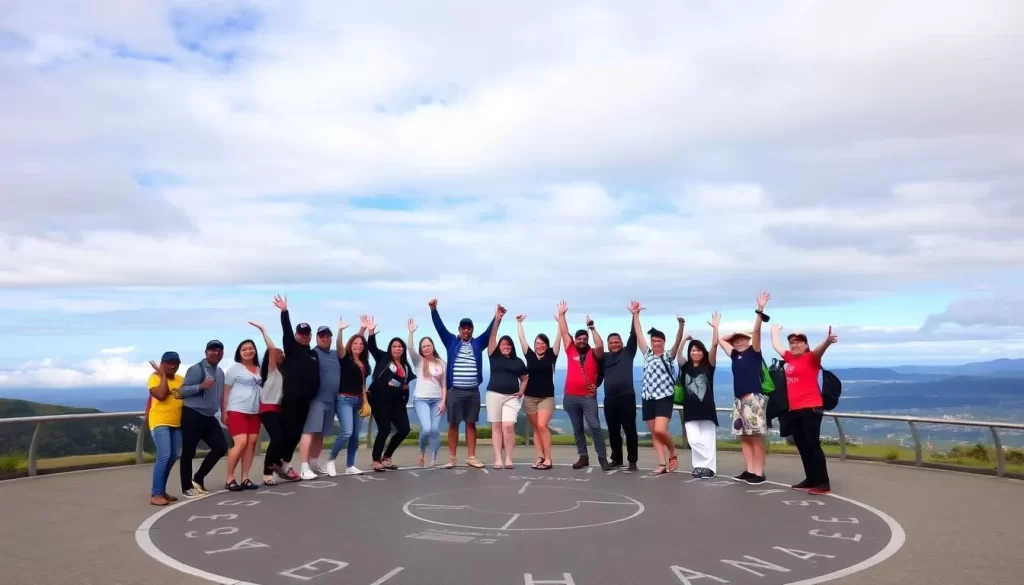
A visit to Mitad del Mundo, situated about 30 kilometers from Quito, is an unforgettable adventure. You can stand in the middle of the world with one foot in each hemisphere, a unique experience that attracts tourists from around the globe.
The Equator Monument
The Mitad del Mundo complex is home to a 30-meter-tall stone trapezoidal structure topped with a metal globe, marking what was believed to be the exact location of the equator when it was built in the 1980s. For a $5 USD entrance fee, you can explore the monument, various exhibits about Ecuadorian geography and culture, and shops selling local crafts and souvenirs, making for a great trip addition.
You can climb the monument for free and enjoy panoramic views of the surrounding area. The complex is easily accessible by taking a bus from Ofelia Station in Quito to the Mitad del Mundo stop, making it a convenient tour option.
Intiñan Museum: The True Equator
Interestingly, modern GPS technology has revealed that the true equator actually lies about 240 meters north of the monument. You can visit the nearby museum, Intiñan, for an additional $4 USD entrance fee, where you’ll find the actual equatorial line.
The Intiñan Museum offers interactive demonstrations of equatorial phenomena, such as water draining in different directions on either side of the equator. You can spend around 3-4 hours exploring both the Mitad del Mundo monument and the Intiñan Museum, making it a perfect half-day trip or tour from Quito.
Planning your visit is straightforward, and you can easily book a tour or use public transportation. Whether you’re looking for a quick visit or planning to spend a few days exploring the area, Mitad del Mundo is a must-visit destination.
Urban Escapes: Quito’s Beautiful Parks
In the midst of Quito’s vibrant city life, its parks stand out as oases of calm and natural beauty. These green spaces are not just a respite from the urban bustle but also a reflection of the city’s commitment to preserving nature within its boundaries.
Parque La Carolina: Quito’s Central Park
Parque La Carolina is a massive park in the heart of Quito, often referred to as the city’s version of New York’s Central Park. Spanning an impressive 165 acres, it offers a perfect escape from urban life without leaving the city limits. This expansive green area is equipped with numerous recreational facilities, including sports fields, a skate park, paddleboat rentals on an artificial lake, jogging paths, and playgrounds, making it a popular spot for both locals and visitors.
On weekends, the park transforms into a vibrant social hub where Quiteños gather for picnics, sports, and relaxation. Food vendors and small markets pop up throughout the area, offering a glimpse into local life and cuisine.
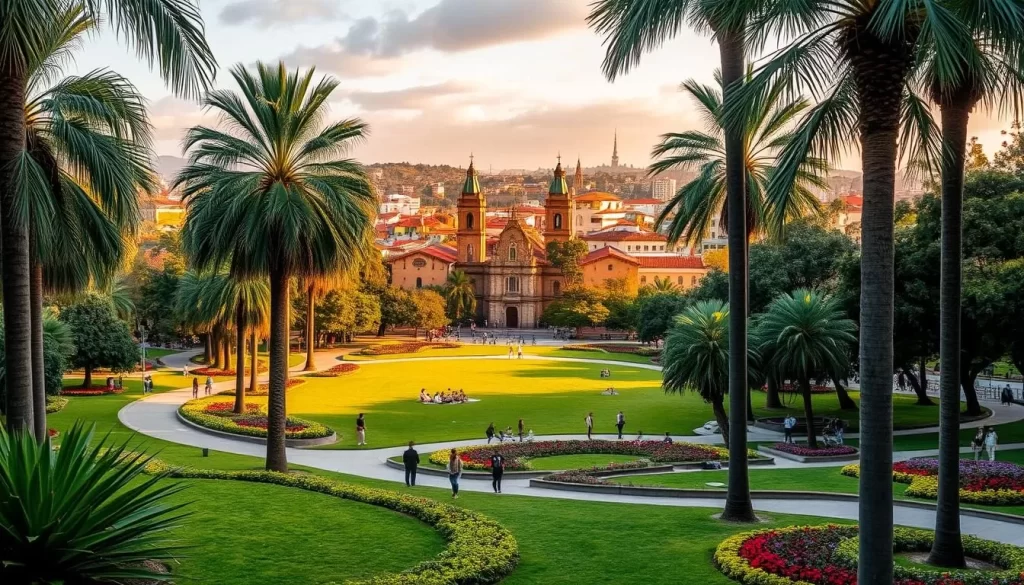
Parque Itchimbia: Panoramic City Views
For a different park experience with spectacular panoramic views of the city, head to Parque Itchimbia, located on a hill east of the historic center. Accessible via several staircases or a short taxi ride, the park offers more than just a green escape; it provides a vantage point to appreciate Quito’s sprawling urban landscape.
The park’s main attraction is the Palacio de Cristal (Crystal Palace), a stunning glass and steel structure originally built in Germany and shipped to Quito over a century ago. Now serving as a cultural center and event venue, it’s a must-visit. Don’t miss the opportunity to take a photo with the large “Quito” sign, with the city and surrounding mountains creating a dramatic backdrop for your memories.
Culinary Adventures in Quito
As you explore Quito, you’ll discover a world of flavors that blend indigenous, Spanish, and African influences. The city’s culinary scene is a reflection of its rich cultural heritage, offering a diverse array of traditional Ecuadorian dishes and modern twists.
Must-Try Ecuadorian Dishes
Quito’s food scene is a treat for the senses, with popular dishes like locro de papa (potato soup with cheese and avocado), llapingachos (cheese-stuffed potato patties), and ceviche showcasing the city’s culinary diversity. For the more adventurous eaters, cuy (guinea pig) is a unique experience.
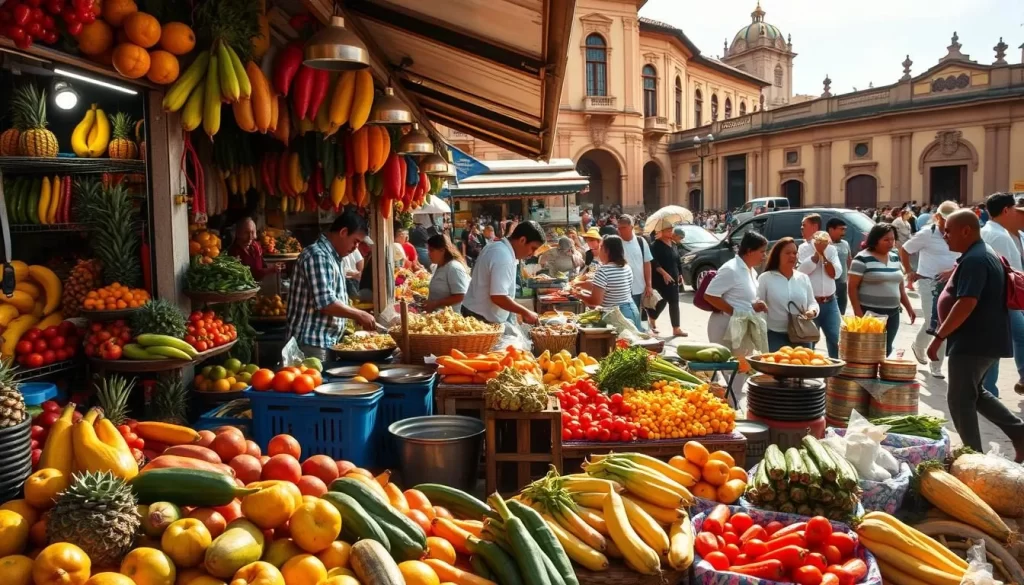
Mercado Central and Local Food Markets
For an authentic culinary experience, visit Mercado Central, located on Av. Pichincha near the historic center. Here, you can sample local dishes and fresh tropical fruits at incredibly affordable prices. A full meal with fresh juice often costs just $3 USD. The market’s second floor is dedicated to food stalls serving traditional Ecuadorian cuisine in a no-frills setting.
Best Restaurants and Cafés
For a more upscale dining experience, Quito offers excellent restaurants like Somos and Zazu. Somos serves elevated Ecuadorian cuisine with global influences, while Zazu is known for its contemporary take on traditional flavors. The La Floresta neighborhood has emerged as Quito’s culinary hotspot, with numerous cafés, restaurants, and craft breweries offering both local and international cuisine.
| Restaurant | Cuisine | Location |
|---|---|---|
| Somos | Elevated Ecuadorian | Quito |
| Zazu | Contemporary Ecuadorian | Quito |
| Mercado Central | Traditional Ecuadorian | Av. Pichincha |
Unforgettable Day Trips from Quito
If you’re staying in Quito, you’re in luck because there are numerous unforgettable day trips to be taken. The city’s strategic location allows you to explore some of Ecuador’s most spectacular natural wonders within a few hours’ drive.
Cotopaxi National Park
Cotopaxi National Park is a must-visit destination for any nature lover or adventure seeker. As home to one of the world’s highest active volcanoes, it offers an unforgettable day trip where you can hike up to the snow line at 16,000 feet, visit the picturesque Limpiopungo Lagoon, and spot wild horses and Andean wildlife against dramatic volcanic landscapes.
Day tours to Cotopaxi National Park typically include transportation, a knowledgeable guide, breakfast and lunch, and all park entrance fees, making it a convenient way to experience this natural wonder without organizing logistics yourself.
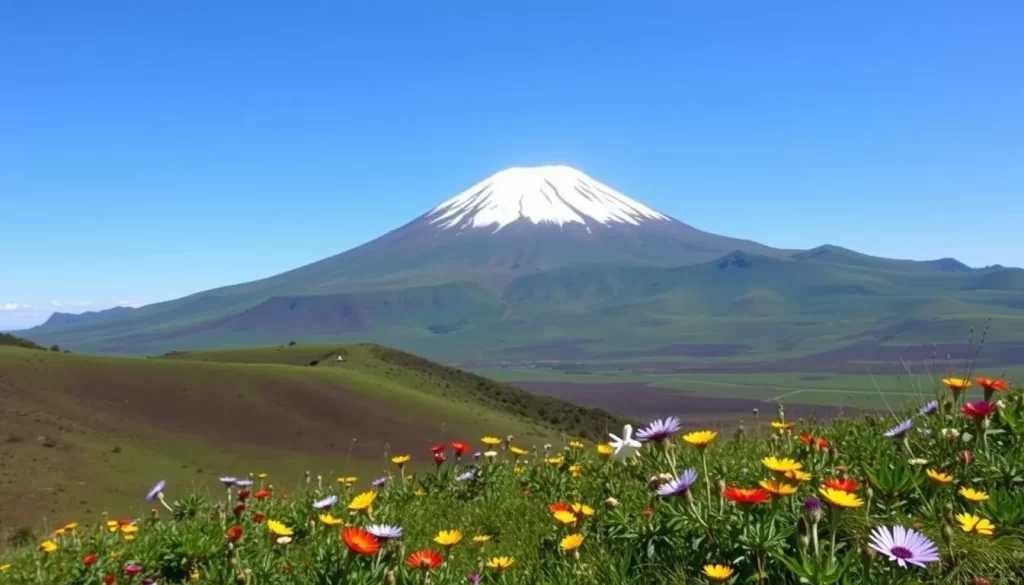
Quilotoa Crater Lake
Another must-do day trip is to the stunning Quilotoa Crater Lake, a water-filled caldera with striking turquoise waters surrounded by rugged volcanic walls, located about 3 hours from Quito. On a Quilotoa day trip, you’ll typically enjoy viewpoints of the crater from above, hike down to the lake’s shore (with the option to kayak on its waters), and experience local indigenous communities along the way.
Be prepared for the challenging hike back up, but the breathtaking views make it well worth the effort.
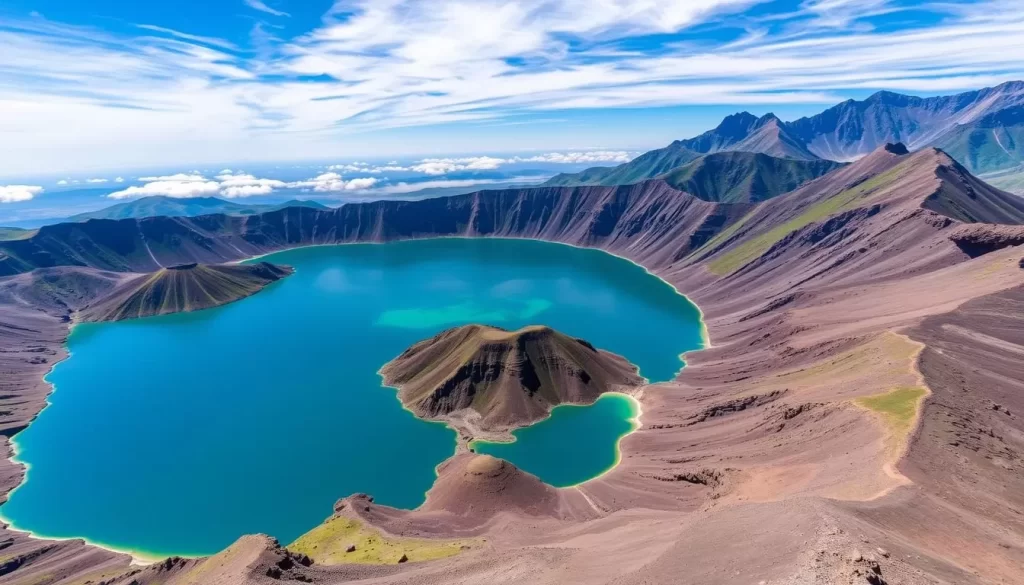
Otavalo Market
For a cultural day trip, head to the famous Otavalo Market, one of South America’s largest indigenous markets, where you can purchase high-quality handcrafted textiles, artwork, and souvenirs directly from the artisans who make them. The Otavalo day trip often includes stops at other attractions like the Peguche Waterfall, leather shops in Cotacachi, or the tranquil Cuicocha crater lake, making for a full day of diverse experiences in the northern highlands.
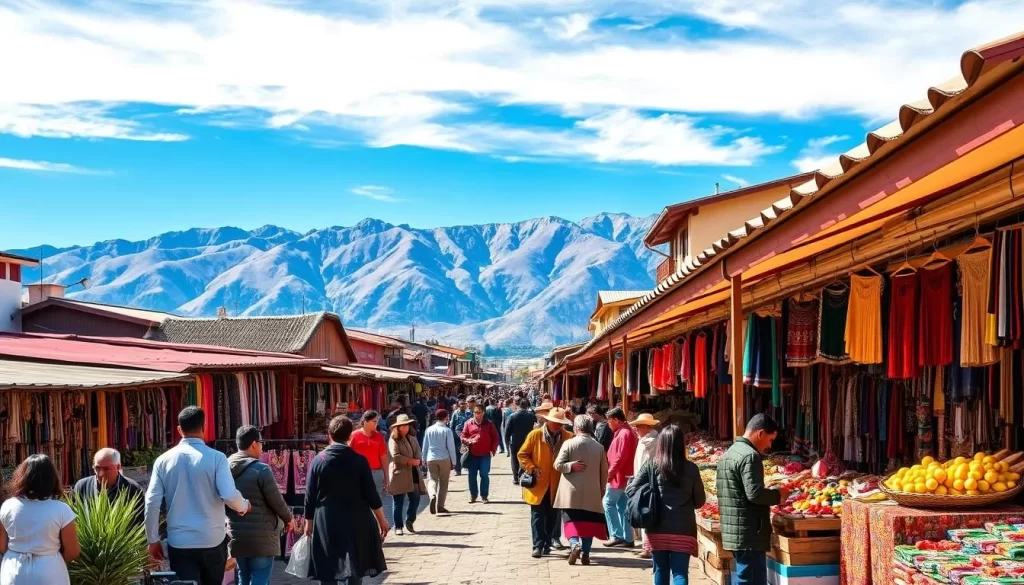
Off the Beaten Path: Hidden Gems Around Quito
For those willing to explore, Quito’s hidden gems offer unforgettable adventures. While the city itself is steeped in history and culture, its surroundings are home to natural wonders and unique experiences that are worth venturing out for.
Mindo Cloud Forest
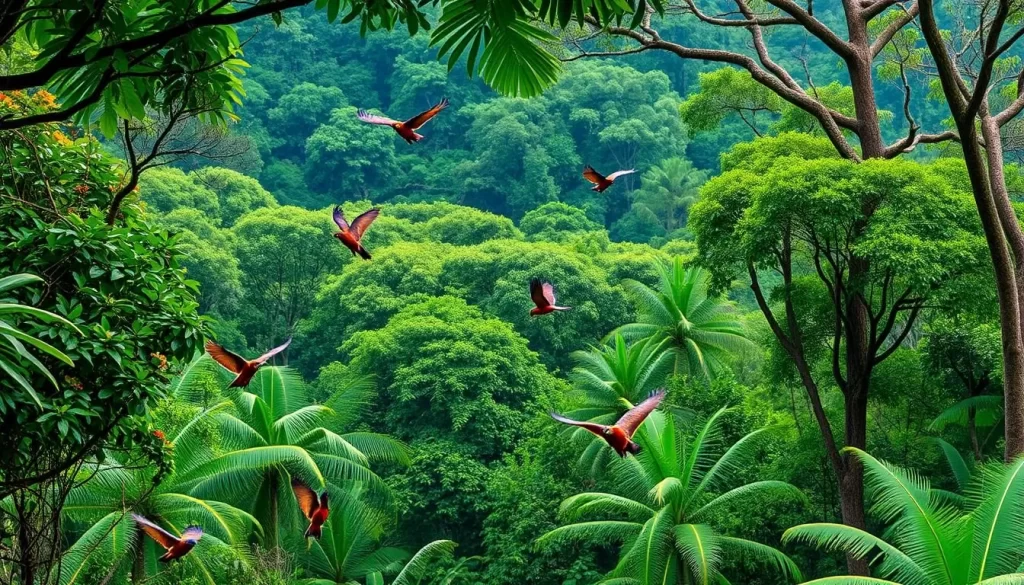
The Mindo Cloud Forest, located just two hours northwest of Quito, is a haven for nature lovers. With its lush vegetation and rushing rivers, it’s a perfect spot for a day tour or an overnight trip. You can enjoy activities like zip-lining through the canopy, exploring butterfly gardens, or taking a chocolate-making tour at local cacao farms.
Mindo is renowned for its bird-watching opportunities, with over 500 species, including toucans, quetzals, and the Andean cock-of-the-rock. The time spent here is well worth it, with many hours of exploration awaiting you.
Papallacta Hot Springs
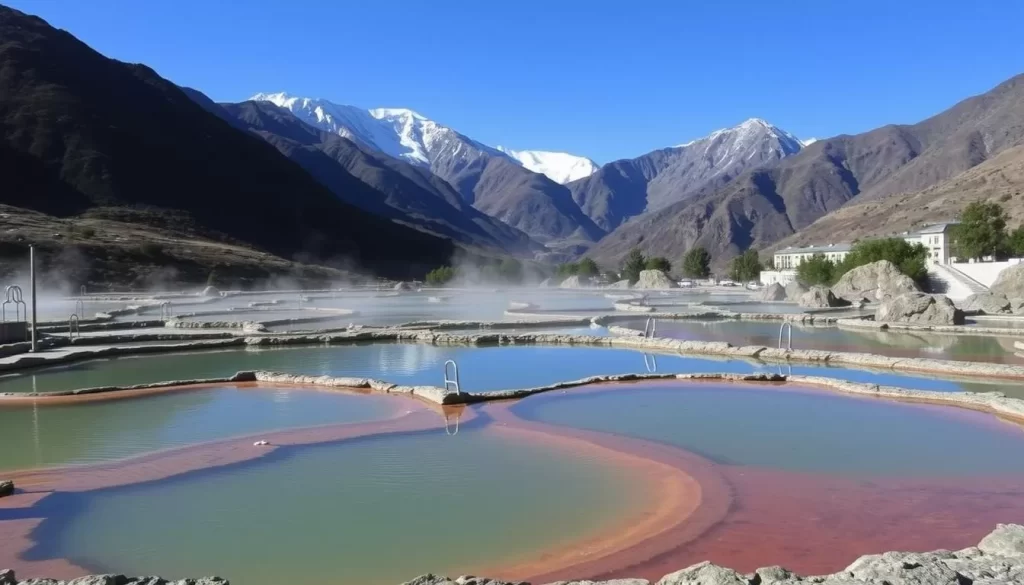
After exploring Quito and its surroundings, unwind at the Papallacta Hot Springs, located about 1.5 hours east of Quito. These natural thermal pools offer a relaxing soak in mineral-rich waters, set against the stunning backdrop of the Andean mountains. It’s an ideal way to spend your time after several days of sightseeing or hiking.
You can visit Papallacta as a day trip or stay overnight at one of the local lodges, enhancing your experience and allowing you to enjoy the springs under the stars or during the less crowded early morning hours.
Conclusion: Making the Most of Your Quito Adventure
As you explore Quito, you’ll find that it’s a city that masterfully balances tradition and innovation, making it a top destination in South America. Quito offers some of the best things to do in Ecuador, combining colonial architecture, indigenous culture, and access to stunning natural landscapes.
To make the most of your Quito adventure, consider spending at least 3-4 days in the city to explore the top attractions and take day trips to nearby natural wonders. Whether you prefer guided tours or independent exploration, Quito accommodates all travel styles.
With its international airport and central location, Quito serves as an excellent base for exploring Ecuador. Don’t underestimate the effects of altitude; plan your activities gradually to ensure a enjoyable travel guide experience.
The above is subject to change.
Check back often to TRAVEL.COM for the latest travel tips and deals.